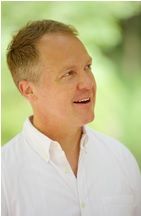
Dear members,
We had the U.S. ambassador to Japan visit the FCCJ last month to deliver perhaps the most consequential speech of his tenure so far. Rahm Emanuel came to the club to mark what he argued was an historic moment following elections in the U.S., Brazil, Italy, Israel and France.
“In the recent midterm elections, the American people emphatically rejected election deniers and political violence and reaffirmed that the will of the people prevails. The political system and its legitimacy were accepted," he said. Two years after riots in Washington, DC on January 6, 2020, "the institutions and political norms that make up the American government and political system held and gained strength.”
Emanuel made the case that democracies such as the U.S. and Japan are reemerging as global models for governance after dark years of political divisions and disruptive autocracies. This demonstration of strength comes just as China and Russia are struggling with growing dissent and economic tumult.
This contrast is critical, the ambassador said. When countries like the U.S. and Japan demonstrate the resilience of their political systems, they provide the certainty to citizens and companies that leads to economic growth and opportunity. He showed a map with hundreds of investment projects of $1 billion or more, in everything from semiconductors and batteries to pharmaceuticals. Japan has also attracted a surge in foreign investment, particularly from the U.S. and Taiwan.
The event was packed with reporters and club members. Press coverage was widespread. Our YouTube video drew hundreds of viewers.
Whether you agree with Emanuel's point of view or not, it's worth appreciating for a moment his choice of venue. He came to the FCCJ because he knows our club represents an essential pillar of democracies. Freedom of the press is at the heart of holding governments to account. Free speech is the foundation of free societies.
The event demonstrated the power of this dynamic. During the Q&A, I pressed the ambassador on the foundation of his argument. Is it not too soon – less than two years after the events of January 6 – to declare victory? And why should the U.S. set policy for the rest of the world? Anthony Rowley weighed in with the contention that the U.S. economy would be put at risk from rising interest rates. Isabel Reynolds and Pio d'Emilia joined the debate too.
This week saw another demonstration of the club's efforts in this regard. Toru Kubota, a documentary filmmaker jailed in Myanmar, spoke about his work on 28 November. An Japanese activist for youth exchanges with China discussed his imprisonment in China on Wednesday. And on Friday, Dan Wang, one of the leaders of the Tiananmen democracy movement, will come to the club to discuss Xi Jinping an the current state of the Chinese Communist Party.
There is one message we cannot repeat often enough: anyone who supports the mission of the FCCJ can become a member. You do not have to be foreign or a correspondent. I regularly find this is not well understood by the general public. Please join me in helping to convey this openness to anyone who you think has an interest in supporting our work.
Thank you, as always, for your support.
Sincerely,
Peter Elstrom
President

